Start your recovery right away.
Start your recovery right away. Contact Virtue Drug and Alcohol Recovery Center at 866-461-3339 to find a treatment program near you.
[trustindex data-widget-id=e88f08d27efe2878bb760eb4a03]
Acknowledging that you or someone close to you is dealing with cocaine addiction can be challenging. Cocaine addiction detox and rehab are critical steps in the healing journey for individuals grappling with cocaine use. This page provides comprehensive insights into securing the essential care needed at a cocaine recovery center.
Discover Virtue Recovery Center’s Cocaine Addiction Recovery Programs, accessible in Arizona, Texas, Nevada, and Oregon. Our customized, in-depth strategy tackles all dimensions of addiction, delivering individualized treatments, evidence-based therapies, and holistic care. We’re dedicated to equipping each person with the necessary tools and support for enduring sobriety and overall well-being, steering everyone toward a more healthful, rewarding future.
Our cocaine addiction programs define our exceptional approach at Virtue Recovery Center. From personalized treatment plans tailored to meet individual needs to applying advanced evidence-based therapies, we focus on holistic, integrative care.
Our dedicated team offers compassionate support, fostering a healing environment that encourages recovery and growth.
We emphasize community building and ongoing support, ensuring our clients have a solid foundation for long-term success and a sustained journey toward sobriety and well-being.
Addressing physical, emotional, and psychological aspects of addiction.
Tailored plans to meet individual needs.
Including counseling and support groups.
Integrated into individualized care for a well-rounded recovery.
Understanding that each person’s path to recovery is distinct.
Equipping clients with tools for long-term sobriety and success.
Aftercare services to assist in maintaining sobriety and facing life’s challenges.
At Virtue Recovery Center, our ethos centers on a holistic and personalized approach to recovery from cocaine addiction.
We delve deeper than merely addressing symptoms, focusing instead on identifying and tackling the underlying causes of cocaine use.
Through the incorporation of diverse evidence-based therapies and holistic treatments, we offer a well-rounded recovery experience.
Our methodology is dynamic, adjusting alongside each client’s progress to accommodate their evolving needs and foster their development at every stage.
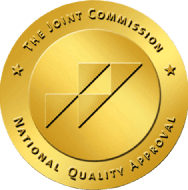
The Joint Commission is recognized as the nation's largest and only accreditor that spans the full continuum of care. Accreditation by The Joint Commission signifies that our facility meets the rigorous standards for quality and safety in healthcare.
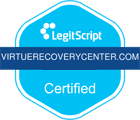
LegitScript Certification is crucial for healthcare providers operating online, including those specializing in addiction treatment. Being LegitScript-certified means we adhere to the highest standards of safety and compliance, ensuring that we operate legally and safely.

The National Association of Addiction Treatment Providers (NAATP) is a leading organization dedicated to providing support, advocacy, and resources to addiction treatment providers across the United States.
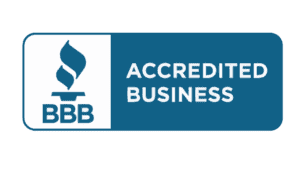
BBB Accreditation signifies our commitment to integrity, ethical business practices, and customer service excellence. As a BBB Accredited Business, we are part of a select group of companies that have committed to high standards and best practices in all areas of operation.
Dedicated to empowering individuals to overcome cocaine addiction, regain control of their lives, and achieve a future of health, happiness, and fulfillment.
Cocaine addiction, also referred to as cocaine use disorder, is the non-clinical term for a chronic condition characterized by an intense craving for cocaine and an inability to control its use. This condition leads individuals to consume larger doses to achieve the same effects as before and to experience withdrawal symptoms upon cessation. The clinical term for this addiction is stimulant use disorder, specifically for cocaine.
Cocaine addiction can severely affect both physical and mental health, and it can also lead to problems in relationships, work, and social activities. This brain disorder ranges from mild to severe, with long-term changes caused by cocaine misuse making individuals prone to relapse.
In assessing whether someone has a stimulant use disorder related to cocaine, healthcare professionals use the Diagnostic and Statistical Manual of Mental Disorders, Fifth Edition (DSM-5). This manual helps them determine the disorder’s severity based on the number of symptoms exhibited. Mild disorders are indicated by 2-3 criteria, moderate by 4-5, and severe by 6 or more.
Signs and symptoms of cocaine use disorder include, but are not limited to:
Hope exists, as cocaine recovery programs offer evidence-based treatments like behavioral therapies, mutual-support groups, and medications when appropriate. Cocaine addiction treatment options aim to help individuals achieve and maintain recovery, no matter the problem’s severity. While many individuals recover successfully, encountering setbacks during the recovery process is not uncommon. Seeking professional assistance early can significantly aid in preventing relapse.


The costs of cocaine addiction rehabilitation can greatly differ, influenced by several variables such as geographic location, the specific type of treatment required, insurance coverage, and the qualifications and experience of the healthcare professionals involved. On average, a 30-day inpatient program for cocaine addiction might cost anywhere from $5,000 to $20,000, while sessions of cognitive behavioral therapy in an outpatient setting usually range between $100 and $200. To gain more insight into the expenses tied to our evidence-based cocaine treatment programs and the admissions process, please call 866-461-3339.
Cocaine withdrawal without the support of Medication-Assisted Treatment (MAT) can be an intensely challenging and distressing experience. As cocaine leaves the system, individuals may experience a “crash” that includes profound fatigue, depression, irritability, and intense cravings for the drug. Unlike some other substances, cocaine withdrawal does not typically cause severe physical symptoms, but the psychological impact can be overwhelming. Feelings of deep sadness, anxiety, restlessness, and even suicidal thoughts are common, making it difficult for individuals to cope without professional support. The lack of energy and motivation, combined with powerful cravings, often leads to a high risk of relapse as individuals may turn to cocaine again in an attempt to alleviate their discomfort. Without MAT, managing the psychological symptoms of cocaine withdrawal can be incredibly difficult, often requiring significant support to navigate successfully.
Cocaine withdrawal with Medication-Assisted Treatment (MAT) offers a more structured and supportive approach to managing the difficult symptoms associated with detox. Although there are no FDA-approved medications specifically for cocaine withdrawal, certain off-label medications can be used to help manage symptoms such as depression, anxiety, and sleep disturbances. These medications, along with behavioral therapies and close medical supervision, provide critical support during the withdrawal phase. MAT helps to stabilize mood, reduce cravings, and address the emotional challenges of withdrawal, making the process more manageable and less likely to lead to relapse. By easing the psychological burden of cocaine withdrawal, MAT increases the likelihood of a successful detox and sets a positive foundation for continued recovery.
Discover the Powerful Transformations of Our Clients at Virtue
[trustindex data-widget-id=35e3c5f27c6824203306d1ac7ef]
Rehabilitation centers usually adhere to a vital sequence of stages in the recovery journey, beginning with intake, followed by detoxification, then transitioning into a cocaine recovery program, and ultimately, progressing to ongoing recovery. Although the specific approach of each center can differ, they provide customizable cocaine addiction recovery programs tailored to meet the unique needs of each individual. The life skills and coping strategies acquired throughout these programs play a crucial role in sustaining sobriety.
A residential cocaine recovery program provides a transformative journey to conquer your addiction. Within this supportive and structured setting, you will temporarily stay at a facility to receive all-encompassing treatment. The program typically encompasses detoxification, individual counseling, group therapy, evidence-based therapies, and round-the-clock medical support to tackle root causes, foster coping mechanisms, and lay down a firm foundation for sustained sobriety.
A key benefit of such a program is the elimination of external triggers and sources of temptation. Living in a controlled environment means you’re removed from access to cocaine, allowing you to concentrate entirely on your recovery. The program’s organized nature offers a consistent routine, promoting the development of healthy habits that you can maintain after completing rehab.
Towards the program’s conclusion, an aftercare strategy is formulated to aid in maintaining your sobriety, involving outpatient services, support groups, and access to community resources.
In an inpatient cocaine recovery program, you’ll stay in a supportive and structured setting specifically designed for your recovery and overall health. This program addresses the multifaceted nature of addiction, covering physical, psychological, and emotional aspects. With around-the-clock medical and clinical support for cocaine addiction, the program prioritizes your safety and comfort during the treatment journey.
Medically supervised detoxification may be provided to manage the symptoms of cocaine withdrawal, ensuring a safe transition away from drug use. Experienced counselors or therapists will conduct individual counseling sessions to help you explore the root causes of your cocaine use and develop effective coping strategies.
The program incorporates evidence-based therapies such as cognitive-behavioral therapy (CBT), dialectical behavior therapy (DBT), and motivational interviewing (MI), aiding in the understanding of your thought and behavior patterns. These therapeutic approaches aim to establish healthier coping mechanisms and address any concurrent mental health conditions.
Group therapy sessions offer the opportunity to connect with others undergoing similar experiences, fostering mutual support and a sense of community. The program might also integrate holistic methods like mindfulness, physical activity, and nutritional counseling to enhance your overall well-being.
Being in an inpatient cocaine recovery program shields you from external triggers and temptations, providing a controlled environment free from cocaine and focused solely on your recovery. This structured approach helps establish beneficial habits and routines that can be continued after completing the program.
As the program concludes, the treatment team will collaborate with you to devise a detailed aftercare plan. This strategy could include moving to outpatient care, engaging in support groups, and utilizing community resources to support ongoing sobriety and recovery.
Outpatient cocaine recovery programs provide the flexibility needed to undergo treatment while keeping up with your daily life. These programs allow you to participate in individual counseling sessions where you can delve into the root causes of your cocaine use and learn effective coping mechanisms. This setup enables you to continue working, attending school, or managing family responsibilities while actively engaging in your recovery process.
The programs utilize evidence-based therapies such as cognitive-behavioral therapy (CBT), motivational interviewing (MI), group therapy, and cocaine relapse prevention strategies. These therapeutic approaches help you acquire skills to control cravings, identify triggers, and implement positive alterations in your behaviors and thought processes related to cocaine use. Additionally, outpatient programs focus on educating about addiction and crafting a tailored aftercare plan.
Outpatient services also grant access to community resources and support groups, providing extra layers of support and encouragement as you navigate the path to long-term sobriety. Committing to the program by attending all sessions and actively participating is key to achieving the best recovery outcomes.
In essence, outpatient programs offer a viable route to receive treatment and support while seamlessly integrating into your everyday life.
Dual-diagnosis treatment programs are a focused approach to addiction treatment that concurrently tackles co-occurring substance use disorders and mental health conditions. This “dual diagnosis” acknowledges the simultaneous occurrence of both a substance use disorder, such as cocaine addiction, and a mental health disorder.
The objective of these programs is to offer integrated care that addresses both the addiction to substances like cocaine and any accompanying mental health issues, acknowledging the significant interaction and influence these conditions have on each other. For effective treatment, it’s crucial to manage both conditions together.
Such programs usually provide a variety of interventions and services tailored for cocaine addiction, including psychoeducation, medication management, and therapy, all customized to suit the individual’s unique requirements. By treating both the addiction and mental health disorders in a unified and thorough way, dual-diagnosis treatment enhances the chances of successful outcomes, equipping individuals with the tools and support needed for sustained recovery and better overall health.
Utilizing a multidisciplinary strategy, these programs aid in clarifying the link between substance use and mental health issues. They furnish strategies for managing these conditions, aiming for a healthier and more balanced lifestyle.
Intensive outpatient programs (IOPs) offer detailed treatment with greater support and organization than standard outpatient therapy, specifically tailored for substance use disorders like cocaine addiction. These programs provide the intensity of treatment needed while still allowing for the flexibility to manage daily responsibilities. This format is ideal if you’re seeking an in-depth approach to treatment without the need for round-the-clock supervision.
Participants typically engage in treatment sessions multiple times a week, each lasting a few hours. These sessions are designed to uncover the root causes of your cocaine addiction, help you develop effective coping strategies, and establish a robust foundation for your recovery journey. The treatment team employs evidence-based therapies, paralleling those used in cocaine and other drug recovery programs, to equip you with essential skills for managing cravings, identifying triggers, and making positive alterations in your thought processes and behaviors.
A key component of IOPs is the emphasis on peer support, facilitating connections with others navigating their recovery paths. Group therapy sessions offer a nurturing space for sharing personal stories, providing and receiving support, and gaining valuable insights from the experiences of peers. Furthermore, IOPs might include additional support such as family therapy and specialized programs aimed at addressing concurrent mental health issues.
The length of an IOP is customized to meet your specific needs and the pace of your progress. Toward the program’s conclusion, the treatment team will work with you to formulate a comprehensive aftercare strategy. This plan could encompass moving to a less demanding outpatient program, joining support groups tailored to drug recovery, and leveraging community resources to bolster ongoing sobriety.
In a holistic treatment program for cocaine addiction, you’ll be embraced by a comprehensive strategy aimed at healing your mind, body, and spirit. Recognizing that cocaine addiction impacts various dimensions of your well-being, holistic treatment seeks to address each one comprehensively. You’ll engage in therapies and interventions extending beyond conventional approaches.
These therapies can include mindfulness practices, meditation, yoga, art therapy, acupuncture, and other alternative methods, all designed to foster self-awareness, alleviate stress, reduce physical discomfort, and open up new paths for self-expression and healing. A focus on physical health is also paramount, with nutrition guidance, exercise, and wellness activities playing a crucial role in bolstering your overall well-being and aiding your recovery process.
Holistic programs typically emphasize education on making healthy lifestyle choices, mastering stress management techniques, and developing coping strategies, encouraging you to lead a balanced, sustainable lifestyle conducive to long-term recovery.
Supported by a team of professionals who prioritize treating you as a complete individual rather than solely focusing on the addiction symptoms, you’ll collaborate to devise a personalized treatment plan that aligns with your specific needs and aspirations.
A residential cocaine recovery program provides a transformative journey to conquer your addiction. Within this supportive and structured setting, you will temporarily stay at a facility to receive all-encompassing treatment. The program typically encompasses detoxification, individual counseling, group therapy, evidence-based therapies, and round-the-clock medical support to tackle root causes, foster coping mechanisms, and lay down a firm foundation for sustained sobriety.
A key benefit of such a program is the elimination of external triggers and sources of temptation. Living in a controlled environment means you’re removed from access to cocaine, allowing you to concentrate entirely on your recovery. The program’s organized nature offers a consistent routine, promoting the development of healthy habits that you can maintain after completing rehab.
Towards the program’s conclusion, an aftercare strategy is formulated to aid in maintaining your sobriety, involving outpatient services, support groups, and access to community resources.
In an inpatient cocaine recovery program, you’ll stay in a supportive and structured setting specifically designed for your recovery and overall health. This program addresses the multifaceted nature of addiction, covering physical, psychological, and emotional aspects. With around-the-clock medical and clinical support for cocaine addiction, the program prioritizes your safety and comfort during the treatment journey.
Medically supervised detoxification may be provided to manage the symptoms of cocaine withdrawal, ensuring a safe transition away from drug use. Experienced counselors or therapists will conduct individual counseling sessions to help you explore the root causes of your cocaine use and develop effective coping strategies.
The program incorporates evidence-based therapies such as cognitive-behavioral therapy (CBT), dialectical behavior therapy (DBT), and motivational interviewing (MI), aiding in the understanding of your thought and behavior patterns. These therapeutic approaches aim to establish healthier coping mechanisms and address any concurrent mental health conditions.
Group therapy sessions offer the opportunity to connect with others undergoing similar experiences, fostering mutual support and a sense of community. The program might also integrate holistic methods like mindfulness, physical activity, and nutritional counseling to enhance your overall well-being.
Being in an inpatient cocaine recovery program shields you from external triggers and temptations, providing a controlled environment free from cocaine and focused solely on your recovery. This structured approach helps establish beneficial habits and routines that can be continued after completing the program.
As the program concludes, the treatment team will collaborate with you to devise a detailed aftercare plan. This strategy could include moving to outpatient care, engaging in support groups, and utilizing community resources to support ongoing sobriety and recovery.
Outpatient cocaine recovery programs provide the flexibility needed to undergo treatment while keeping up with your daily life. These programs allow you to participate in individual counseling sessions where you can delve into the root causes of your cocaine use and learn effective coping mechanisms. This setup enables you to continue working, attending school, or managing family responsibilities while actively engaging in your recovery process.
The programs utilize evidence-based therapies such as cognitive-behavioral therapy (CBT), motivational interviewing (MI), group therapy, and cocaine relapse prevention strategies. These therapeutic approaches help you acquire skills to control cravings, identify triggers, and implement positive alterations in your behaviors and thought processes related to cocaine use. Additionally, outpatient programs focus on educating about addiction and crafting a tailored aftercare plan.
Outpatient services also grant access to community resources and support groups, providing extra layers of support and encouragement as you navigate the path to long-term sobriety. Committing to the program by attending all sessions and actively participating is key to achieving the best recovery outcomes.
In essence, outpatient programs offer a viable route to receive treatment and support while seamlessly integrating into your everyday life.
Dual-diagnosis treatment programs are a focused approach to addiction treatment that concurrently tackles co-occurring substance use disorders and mental health conditions. This “dual diagnosis” acknowledges the simultaneous occurrence of both a substance use disorder, such as cocaine addiction, and a mental health disorder.
The objective of these programs is to offer integrated care that addresses both the addiction to substances like cocaine and any accompanying mental health issues, acknowledging the significant interaction and influence these conditions have on each other. For effective treatment, it’s crucial to manage both conditions together.
Such programs usually provide a variety of interventions and services tailored for cocaine addiction, including psychoeducation, medication management, and therapy, all customized to suit the individual’s unique requirements. By treating both the addiction and mental health disorders in a unified and thorough way, dual-diagnosis treatment enhances the chances of successful outcomes, equipping individuals with the tools and support needed for sustained recovery and better overall health.
Utilizing a multidisciplinary strategy, these programs aid in clarifying the link between substance use and mental health issues. They furnish strategies for managing these conditions, aiming for a healthier and more balanced lifestyle.
Intensive outpatient programs (IOPs) offer detailed treatment with greater support and organization than standard outpatient therapy, specifically tailored for substance use disorders like cocaine addiction. These programs provide the intensity of treatment needed while still allowing for the flexibility to manage daily responsibilities. This format is ideal if you’re seeking an in-depth approach to treatment without the need for round-the-clock supervision.
Participants typically engage in treatment sessions multiple times a week, each lasting a few hours. These sessions are designed to uncover the root causes of your cocaine addiction, help you develop effective coping strategies, and establish a robust foundation for your recovery journey. The treatment team employs evidence-based therapies, paralleling those used in cocaine and other drug recovery programs, to equip you with essential skills for managing cravings, identifying triggers, and making positive alterations in your thought processes and behaviors.
A key component of IOPs is the emphasis on peer support, facilitating connections with others navigating their recovery paths. Group therapy sessions offer a nurturing space for sharing personal stories, providing and receiving support, and gaining valuable insights from the experiences of peers. Furthermore, IOPs might include additional support such as family therapy and specialized programs aimed at addressing concurrent mental health issues.
The length of an IOP is customized to meet your specific needs and the pace of your progress. Toward the program’s conclusion, the treatment team will work with you to formulate a comprehensive aftercare strategy. This plan could encompass moving to a less demanding outpatient program, joining support groups tailored to drug recovery, and leveraging community resources to bolster ongoing sobriety.
In a holistic treatment program for cocaine addiction, you’ll be embraced by a comprehensive strategy aimed at healing your mind, body, and spirit. Recognizing that cocaine addiction impacts various dimensions of your well-being, holistic treatment seeks to address each one comprehensively. You’ll engage in therapies and interventions extending beyond conventional approaches.
These therapies can include mindfulness practices, meditation, yoga, art therapy, acupuncture, and other alternative methods, all designed to foster self-awareness, alleviate stress, reduce physical discomfort, and open up new paths for self-expression and healing. A focus on physical health is also paramount, with nutrition guidance, exercise, and wellness activities playing a crucial role in bolstering your overall well-being and aiding your recovery process.
Holistic programs typically emphasize education on making healthy lifestyle choices, mastering stress management techniques, and developing coping strategies, encouraging you to lead a balanced, sustainable lifestyle conducive to long-term recovery.
Supported by a team of professionals who prioritize treating you as a complete individual rather than solely focusing on the addiction symptoms, you’ll collaborate to devise a personalized treatment plan that aligns with your specific needs and aspirations.
For those seeking cocaine rehab, navigating the financial aspects can be daunting, especially without insurance coverage. Nonetheless, treatment centers understand these financial challenges and are committed to working with patients to facilitate access to essential care, regardless of financial situation or insurance availability. Costs can vary from one center to another, with payment options tailored to meet the specific needs of your treatment.
At Virtue Recovery Center, we hold the conviction that financial constraints should not hinder anyone from accessing high-quality and potentially life-saving treatment for cocaine addiction. To discuss how we can assist you in creating a financial plan that makes the necessary care accessible, please call 866-461-3339. Our empathetic financial services team is ready to support you every step of the way.
Numerous insurance providers offer coverage for cocaine rehabilitation, although the extent of coverage can significantly vary based on the insurance company, the specific policy in question, and additional factors. Thankfully, the Mental Health Parity and Addiction Equity Act ensures that insurance plans are required to offer equivalent coverage for mental health and substance abuse treatment as they do for medical and surgical health conditions.
It’s important to carefully review your insurance policy to understand the scope of its coverage fully. Some policies might place restrictions on the number of therapy sessions eligible for coverage or necessitate pre-authorization for certain treatments. Moreover, some insurance plans might specify the use of networks of preferred providers. Furthermore, insurance coverage may differ in terms of the types of therapy or counseling methods covered.
To learn more, call our free hotline number on 866-461-3339. We can review your rehab insurance benefits with you and explain any limitations or requirements.
Virtue Recovery Center treatment facilities work closely with most major insurance companies, including Aetna, Blue Cross Blue Shield, Cigna, HealthSmart, Magellan, MultiPlan, and TriWest. Many insurance providers have deemed our centers “centers of excellence,” and we’re proud to be recognized by multiple insurance providers for our leadership, best practices, research, support, and training in the addiction treatment field.
Call 866-461-3339 to verify your insurance benefits for Cocaine addiction therapy today.
Recovering from cocaine use disorder can be challenging, yet there are effective and safe treatments available, such as medication-assisted treatment (MAT). This approach involves using medications to manage cocaine cravings and reduce the drug’s pleasurable effects. When integrated with counseling and other evidence-based therapies, MAT can play a crucial role in cocaine addiction recovery. The aim of using medications in the treatment process is to decrease cocaine use, prevent relapse, and enhance overall well-being by tackling both the physiological and psychological facets of the disorder. It’s essential to understand that medications will be prescribed based on individual needs and the severity of the addiction.
While there are no FDA-approved medications specifically for cocaine addiction, researchers are exploring the effectiveness of certain medications used for other conditions to treat cocaine addiction. These include:
Combining these medications with counseling and a comprehensive recovery plan can optimize treatment effectiveness. The side effects of these medications vary and can include dizziness, nausea, insomnia, and others, depending on the specific medication used.
Cocaine addiction treatment options aim to support individuals in achieving and maintaining recovery, regardless of the addiction’s severity. While many successfully overcome addiction, it’s common to face setbacks. Seeking professional help early in the addiction can significantly aid in relapse prevention. As always, follow your healthcare provider’s guidance when using any medication for cocaine addiction treatment.
Recovery from cocaine misuse and addiction is a continuous journey that necessitates lifelong support and maintenance for enduring sobriety. The duration of treatment depends on various factors, such as individual needs, the severity of the cocaine addiction, and the chosen treatment methodology. Treatment lengths can span from a few weeks to multiple months or even longer. Here are general timelines for different types of cocaine recovery programs:
These timelines provide a framework for understanding the potential duration of different cocaine addiction treatment approaches, emphasizing the importance of ongoing support and personalized care in achieving long-term recovery.
Couples can engage in cocaine rehab together, based on specific conditions. Such programs are designed to support both partners struggling with cocaine use while also tackling relationship dynamics and co-dependency challenges. It’s essential to recognize that couple-focused programs aren’t available at all rehab facilities, necessitating research by couples to find a program that aligns with their unique requirements. More information: Drug and Alcohol Addiction Rehab for Couples Near Me
Whether an individual risks losing their job for attending rehab can depend on several factors, including the laws of their location and the policies of their employer. Many regions have legal safeguards designed to protect individuals seeking treatment from discrimination. Notable examples of such protections in the United States include the Americans with Disabilities Act (ADA) and the Family and Medical Leave Act (FMLA), which provide certain rights to individuals undergoing medical treatment, including for substance use disorders. However, an individual’s job security might also be influenced by their specific circumstances and performance at work. Furthermore, some employers might have supportive policies in place for employees pursuing treatment. Consulting with an employment lawyer and investigating local employment laws can offer a clearer understanding of one’s protections and rights. More information: How To Go To Rehab Without Losing Your Job
Whether visitors are permitted at a cocaine recovery center varies based on the center’s specific policies and rules. Generally, many rehab facilities implement guidelines that limit or regulate visitation to preserve a therapeutic and focused setting for individuals in treatment. These policies aim to reduce potential distractions, safeguard privacy, and facilitate the recovery process from cocaine addiction. Restrictions on visitors might include set visiting hours, limits on the length of visits, and the need to follow certain rules or guidelines established by the rehab center. It’s recommended to directly contact the rehab center(s) to ask about their visitor policies and any related requirements or limitations. More information: Drug and Alcohol Rehab Centers Near Me That Allow Family & Visitors
Cocaine rehabilitation centers often have distinct pet policies that can differ from one facility to another. While some centers might accommodate therapy animals or permit pets to visit under certain conditions, the majority do not allow patients to bring their pets for the duration of their stay. The primary reasons for this include concerns about hygiene, allergies, safety, and the potential for disruptions within the therapeutic setting. To understand the pet policies and any possible exceptions or alternatives, it’s advisable to directly inquire with the rehab center you’re considering. More information: Addiction Rehab Centers Near Me That Allow Pets, Cats, and Dogs
Cell phone policies in rehab centers can vary. Some centers may limit or prohibit cell phone use to uphold their focused and therapeutic environment, while others may allow supervised or controlled use during designated times or for specific purposes, like contacting family or participating in treatment-related activities. These restrictions are in place to reduce distractions, protect privacy, and prevent triggers or negative influences that can negatively influence recovery. More information: Drug and Alcohol Rehab Centers Near Me That Allow Cell Phones
Residential rehab programs specifically designed to accommodate the needs of pregnant women do exist, offering a comprehensive approach to care. These programs are focused on delivering medical attention, addiction treatment, and therapy tailored to the unique requirements of expectant mothers, aiming to protect the health and well-being of both the mother and her unborn baby. By providing prenatal support alongside addiction treatment, these programs address the particular challenges faced by pregnant women in recovery. More information: Rehab Centers For Pregnant Women and Mothers Near Me
When contemplating inpatient rehab, it’s important to understand that eligibility criteria can differ significantly. Generally, you should have a substance abuse or addiction problem that necessitates comprehensive care, perhaps following unsuccessful attempts at outpatient treatment, and a clear need for a stable and supportive setting. Additional considerations might include concurrent mental health issues, a substantial risk of relapse, or a lack of a supportive home environment, all of which could influence the decision to opt for inpatient treatment. Because each rehab facility operates with its own set of admission standards, reaching out directly to the centers or consulting with a healthcare provider is recommended to obtain the most accurate and relevant information. Call 866-461-3339 to learn more about our criteria for inpatient rehab. More information: Rehab Admissions and Intake Process Near Me
As you embark on the cocaine recovery and rehabilitation process, gaining an understanding of the various stages involved can be immensely helpful. Each phase is critical to your journey towards lasting sobriety and personal development. Though the process may differ from one center to another, here’s a broad overview of the typical cocaine recovery and rehabilitation sequence:
Active participation in your treatment and the comprehensive stages of cocaine recovery profoundly influences outcomes. The specific therapies and recovery trajectory will be tailored to meet your unique needs and goals, with the overarching aim of equipping you with the tools and strategies for a fulfilling, substance-free life.
Each treatment center follows its unique admission procedures, and adhering to these guidelines is crucial. Committing yourself to cocaine addiction rehabilitation is a significant step towards healing and regaining a healthy, substance-free life. Here are some general steps to get started with admission into a cocaine addiction rehab program:
Starting on this path requires courage and determination, but taking these steps is the beginning of your journey toward recovery and a drug-free life.
Supporting a loved one struggling with cocaine use disorder presents its unique challenges, yet taking certain steps can significantly contribute to providing meaningful support and encouragement. Empathy is crucial when offering your support, keeping in mind that the path to recovery is personal to your loved one. While you can offer support, encouragement, and guidance, the decision to seek help and commit to recovery must come from them. Practice patience, continually show your care and understanding, and motivate them towards a healthier life free from cocaine use. Here’s how you can assist:
Educate Yourself: Understanding cocaine use disorder, including its causes, warning signs, symptoms, and available treatments, allows you to approach the situation with empathy and informed support.
Open and Honest Communication: Begin open dialogues about their cocaine use in a caring, non-confrontational way. Highlight your support and encourage them to openly share their feelings and experiences.
Offer Support and Encouragement: Assure your loved one of your presence and support, reinforcing that they’re not alone in their struggles. Provide emotional support, reassurance, and understanding throughout their recovery journey.
Encourage Professional Help: Suggest seeking help from therapists, counselors, or addiction specialists. Offer assistance in finding resources, making appointments, or accompanying them to consultations.
Avoid Enabling Behaviors: Avoid behaviors that indirectly support their cocaine use. Instead, encourage positive actions and the adoption of a healthy lifestyle.
Attend Support Meetings Together: Motivate your loved one to attend support groups related to cocaine recovery, and offer to join them. These groups provide a supportive space for sharing experiences.
Encourage Healthy Coping Mechanisms: Encourage them to explore alternative coping strategies and stress-relief activities like exercise, hobbies, or mindfulness, fostering a constructive and sober lifestyle.
Set Boundaries: Clearly define and communicate boundaries regarding their cocaine use and related behaviors. Explain the impact of their actions on you and others, and be prepared to uphold these boundaries.
Take Care of Yourself: Supporting someone with a cocaine use disorder can be taxing. Prioritize your well-being, seek your own support through counseling or groups, and maintain your health.
Patience and Understanding: Recovery can be fraught with challenges, including the potential for relapse. Maintain a supportive, non-judgmental stance, celebrate their progress, no matter how small, and provide a steady presence through any setbacks.
Ask for Help: Call 866-461-3339 – Our experienced and qualified professionals can provide the compassionate support you and your loved one need during this challenging stage.
Virtue Recovery Center is dedicated to a holistic approach to addiction treatment, encompassing evidence-based solutions, education, advocacy for industry reform, and research to set high standards in addiction care. We strive for excellence and consumer protection in treatment services. For a free assessment, dial 866-461-3339 and start your journey to sustainable recovery.
Explore our accredited and certified facilities listed below for more information:
Arizona is a southwestern state in the United States, known for its diverse landscapes and hot desert climate. The state's landscapes range from the beautiful red rocks of Sedona to the towering saguaro cacti of the Sonoran Desert. Arizona is also home to the Grand Canyon, one of the Seven Natural Wonders of the World, attracting millions of tourists each year.
Phoenix, the state's capital and largest city, offers a vibrant mix of cultural activities, sports events, and a thriving culinary scene. Tucson, Arizona's second-largest city, is a university town that draws visitors with its historic sites and nearby national parks.
Arizona has a rich cultural heritage influenced by Native American, Spanish, Mexican, and pioneer history. The state has 22 federally recognized tribes, more than any other in the United States, contributing significantly to the state's cultural fabric.
The economy of Arizona is robust and diverse, with sectors like healthcare, education, and technology playing significant roles. The state is also one of the largest copper producers in the U.S.
Arizona is known for its hot summers and mild winters, making it a popular destination for snowbirds — people who live in colder climates but migrate south during the winter. However, not all of Arizona is desert; the state also features pine forests and mountain ranges, particularly in the northern regions around Flagstaff and the White Mountains.
For more detailed information, you can visit the official website of Arizona here.
Nevada, largely a desert and semi-arid state, is perhaps best known for Las Vegas, an internationally renowned major resort city known primarily for its gambling, shopping, entertainment, and nightlife. However, Nevada also offers natural beauty, such as the scenic landscapes of Red Rock Canyon and the Great Basin National Park.
Nevada, often known as the "Silver State" due to the importance of silver to its history and economy, is a state in the Western region of the United States. It's bordered by Oregon to the northwest, Idaho to the northeast, California to the west, Arizona to the southeast, and Utah to the east.
Nevada is primarily desert and semi-arid, with much of it located within the Great Basin. Areas south of the Great Basin are within the Mojave Desert, while Lake Tahoe and the Sierra Nevada lie on the western edge. Nevada is the most mountainous state in the contiguous United States.
Las Vegas, the state's largest city, is known globally for its entertainment, gaming, shopping, and dining. The city also serves as the leading financial, commercial, and cultural center for Nevada. Other major cities include Henderson, North Las Vegas, Reno (known for its casinos and proximity to Lake Tahoe), and Sparks.
Nevada has a diverse economy that includes tourism, mining, and cattle ranching. The state is the fourth largest producer of gold in the world.
The state is home to several institutions of higher education, including the University of Nevada, Las Vegas, and the University of Nevada, Reno.
Nevada's vast landscapes offer outdoor activities like hiking in the Sierra Nevada Mountains or visiting the Valley of Fire State Park. The Hoover Dam, Red Rock Canyon National Conservation Area, and the Neon Museum are among the state's other attractions.
For more detailed information, you can visit the official website of Nevada here.
Oregon, located in the Pacific Northwest region of the U.S., is characterized by diverse landscapes that include forests, mountains, farms, and beaches. The state is known for its progressive and environmentally friendly policies. Cities like Portland are celebrated for their quirky, avant-garde culture and are home to iconic coffee shops, boutiques, farm-to-table restaurants, and microbreweries. The state’s beautiful coastline, Mount Hood, and Crater Lake National Park draw numerous outdoor enthusiasts each year.
Oregon, located in the Pacific Northwest region of the United States, is a state known for its diverse landscape of forests, mountains, farms, and beaches. It's bordered by Washington to the north, Idaho to the east, Nevada and California to the south, and the Pacific Ocean to the west. The Columbia River delineates much of Oregon's northern boundary, while the Snake River delineates much of its eastern boundary.
Oregon's largest city, Portland, is famed for its quirky, avant-garde culture and is home to iconic coffee shops, boutiques, farm-to-table restaurants, and microbreweries. Other significant cities include Salem (the state capital), Eugene, Gresham, and Hillsboro.
The state has a mixed economy with agriculture, fishing, hydroelectric power, timber, and technology (with several top tech companies such as Intel operating significant facilities there) playing significant roles. Oregon is also a major producer of wine, ranking third among U.S. states in terms of wineries.
Oregon's landscapes range from the windswept Pacific coastline to the Cascade Mountains, and from verdant vineyards to high desert country in the east. The state is also home to Crater Lake National Park, Mount Hood, Multnomah Falls, and the scenic Columbia River Gorge.
The state has a reputation for progressive policies, having been the first state to enact a bottle bill (requiring can and bottle recycling) and one of the first to legalize recreational marijuana use. Oregonians also enjoy access to excellent outdoor recreation opportunities, including hiking, fishing, biking, and winter sports.
For more detailed information, you can visit the official website of Oregon here.
If you have a health insurance plan with one of the providers listed below, you can read our guide to find out if your coverage includes drug and alcohol therapy treatment.
Start your recovery right away. Contact Virtue Drug and Alcohol Recovery Center at 866-461-3339 to find a treatment program near you.

Our luxury inpatient residential / detox facility in Las Vegas, Nevada. Recover in a serene environment with private rooms, private bathrooms, meals catered by professional chefs, ability to use your phone after the 72 hour blackout period, and much more!
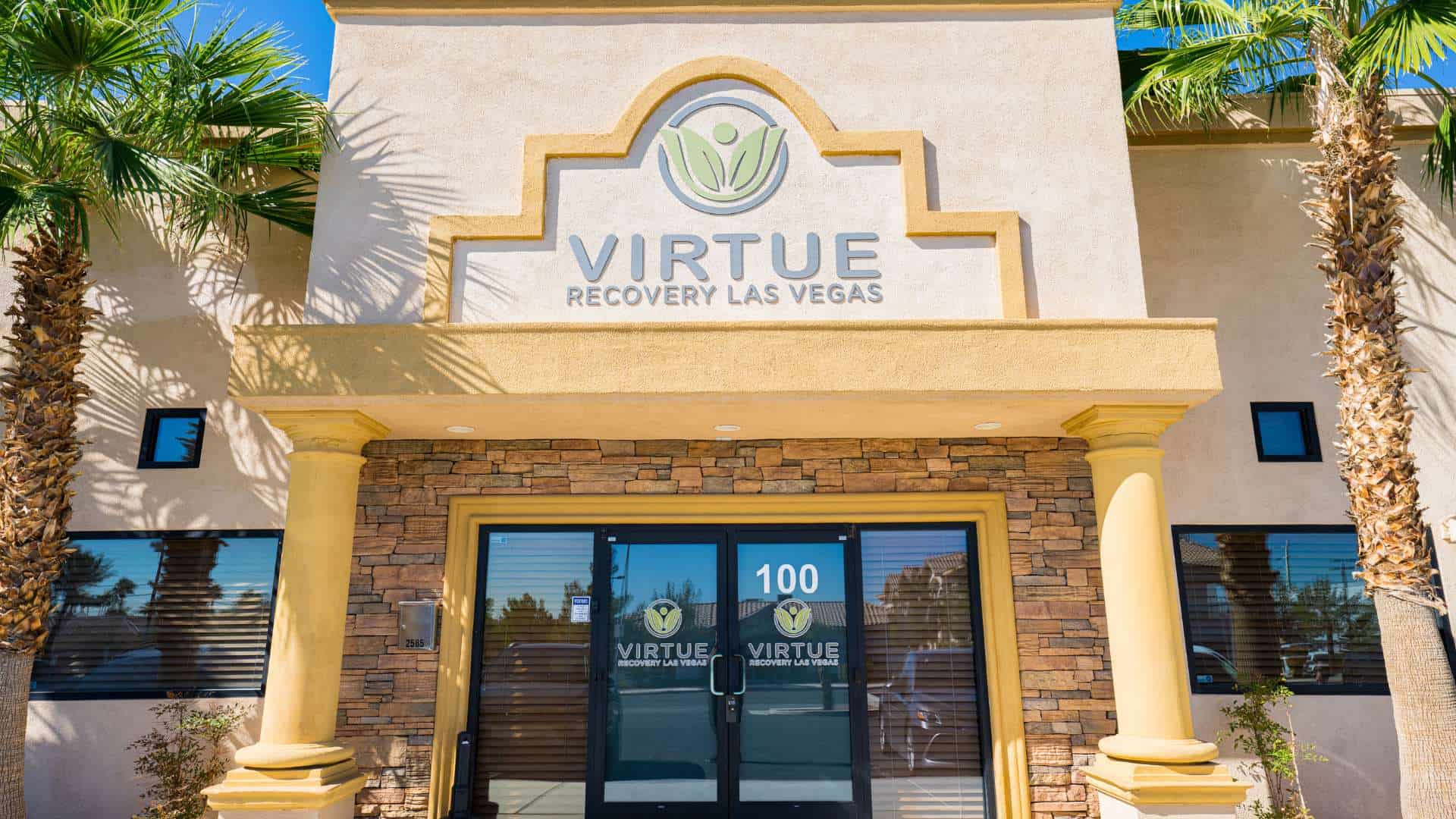
Our Las Vegas outpatient facility offers aftercare, IOP, and PHP with extended hours going from 8am to 8pm to allow clients more flexibility with their treatment. With a culturally sensitive trauma-informed care in a holistic environment clients can recover in an inclusive environment.
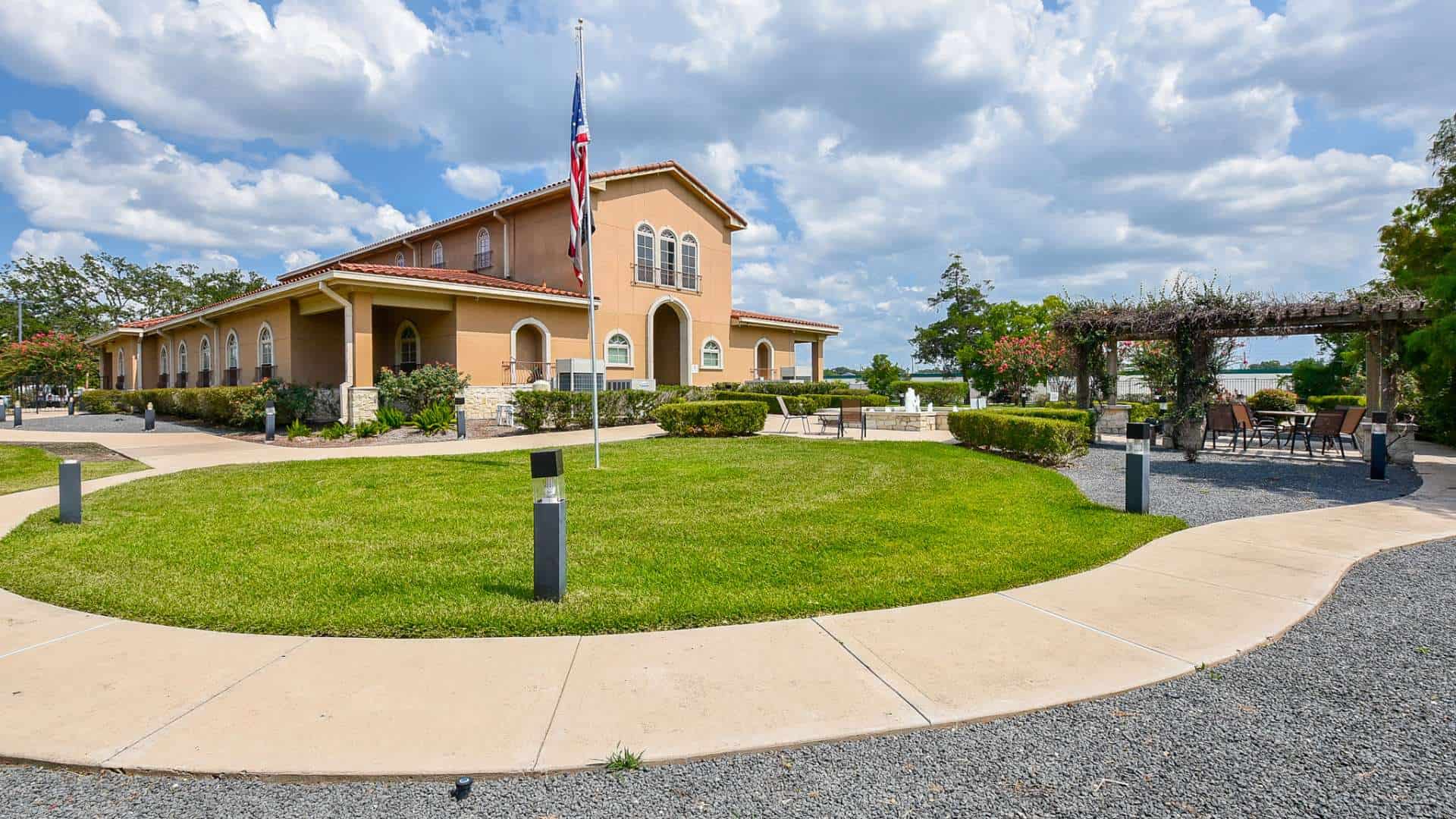
Virtue Recovery Houston is a premier inpatient rehab center offering residential addiction treatment and medical detox. Our expert team provides 24/7 care, evidence-based therapies, and personalized recovery plans to help you break free from addiction for good.
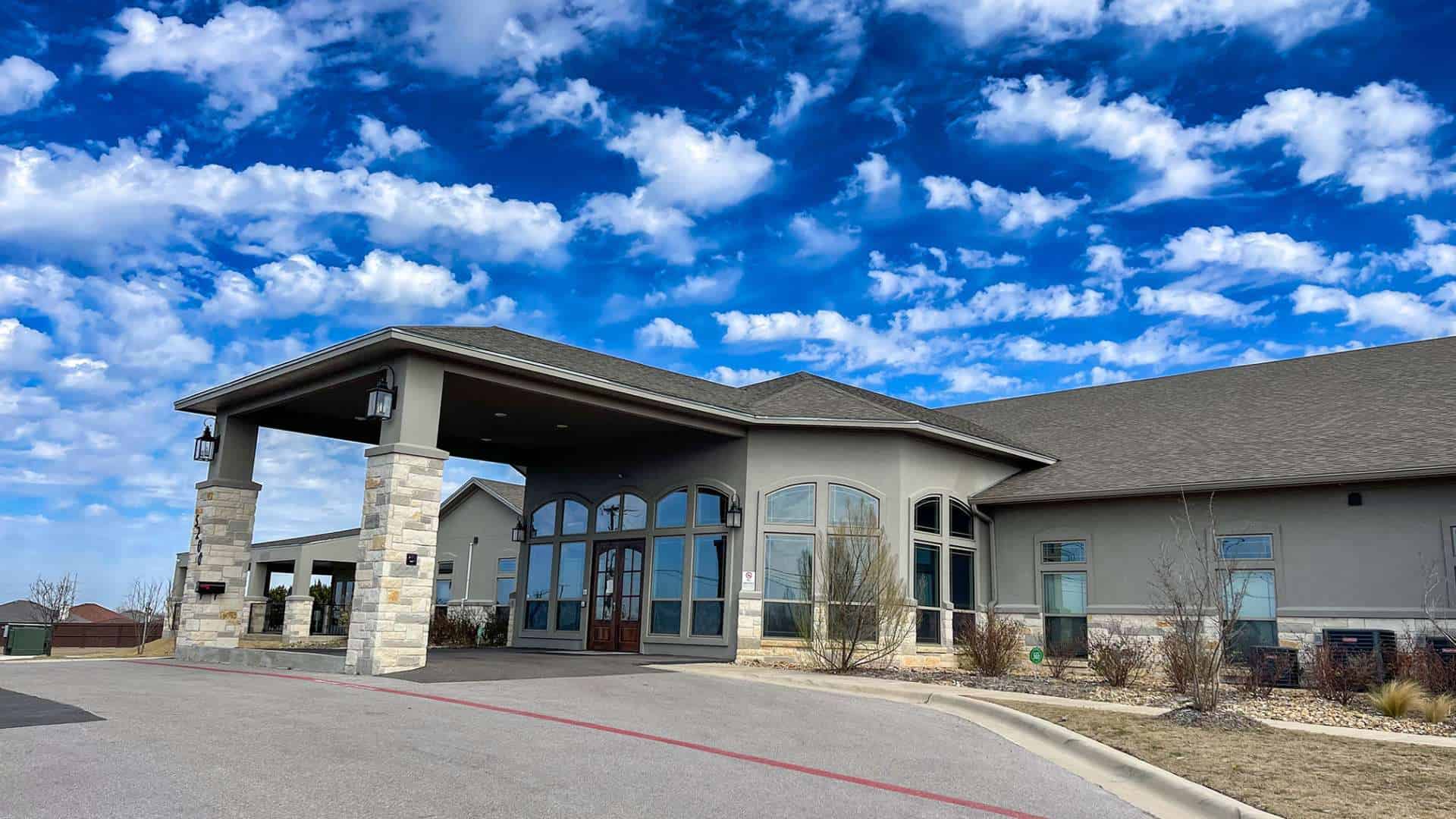
Break free from addiction in a high-end rehab environment at Virtue Recovery Killeen. We offer inpatient treatments like residential addiction treatment, medical detox, and holistic therapies in a setting designed for healing and long-term sobriety.

Recovery starts in the right environment. At Virtue Recovery Chandler, our inpatient treatment program is housed in a cul-de-sac of comfortable, private homes, allowing for personalized care, 24/7 medical support, and a distraction-free path to healing. We also offer outpatient services nearby in Gilbert.
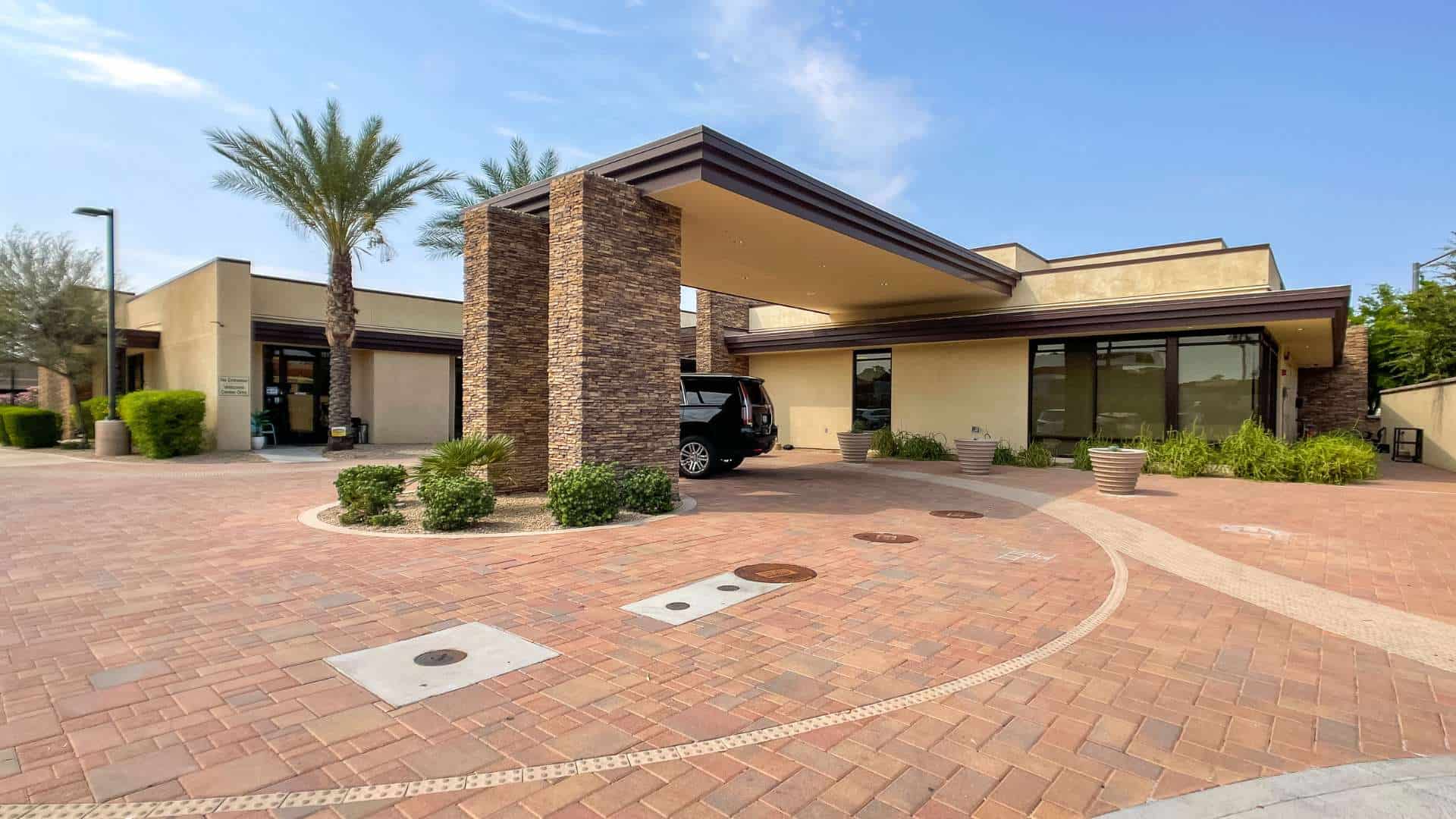
Virtue Detox Sun City West Arizona is a premier medical detox center, providing 24/7 medical supervision, medication-assisted treatment (MAT), and expert care in a safe, comfortable environment. Detox shouldn’t be a nightmare—we make it manageable, effective, and the first step toward real recovery.
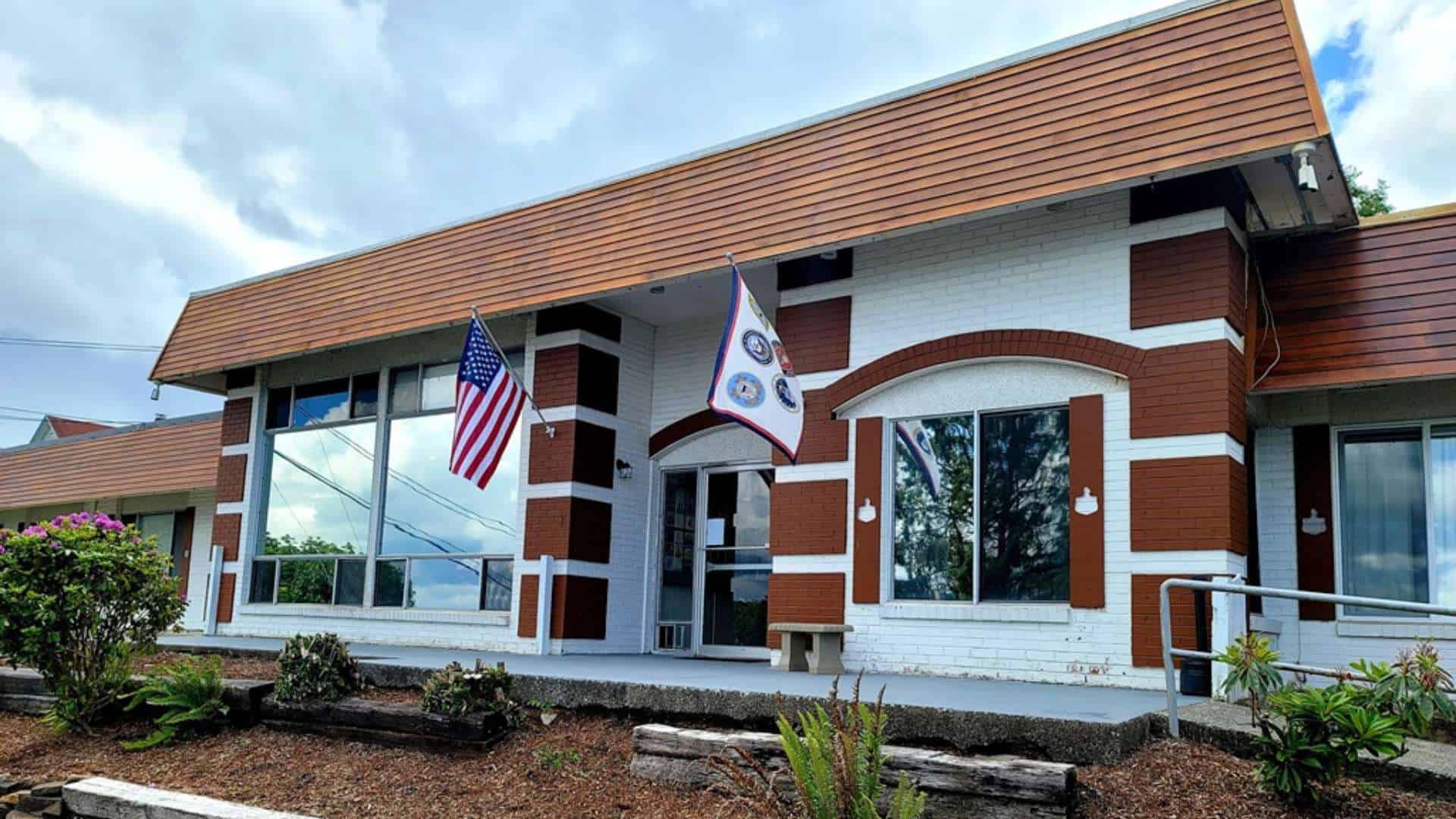
Located in the stunning Pacific Northwest, Virtue at The Pointe is a top-tier inpatient treatment center in Astoria, OR. We offer 24/7 medical support, personalized therapy, and a highly structured recovery program to help individuals break free from addiction and rebuild their lives. We specialize in Veterans Addiction Treatment.
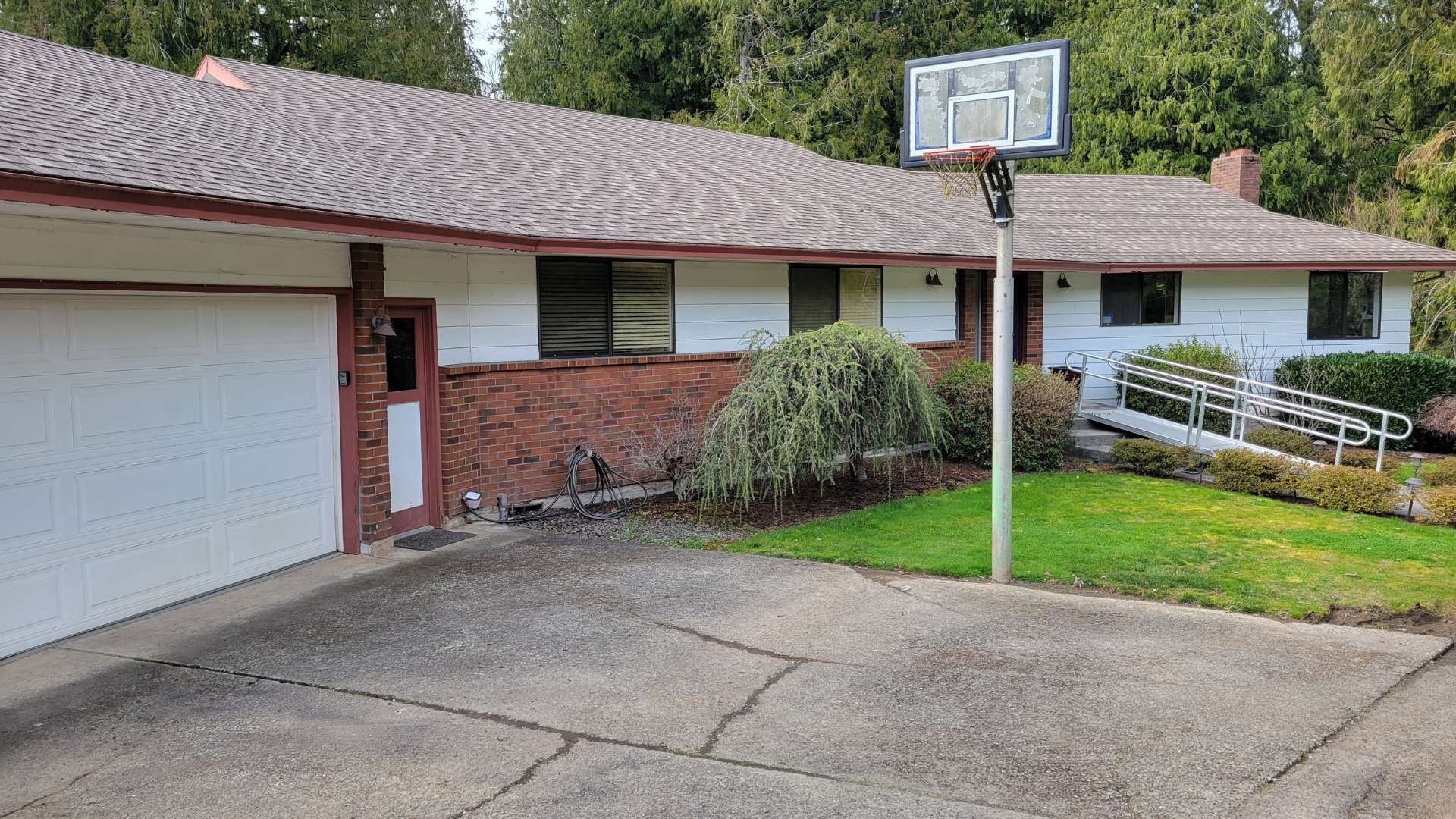
Outpatient treatment that feels like home. Virtue at The Pointe in Milwaukie, OR offers structured addiction recovery in a comfortable, home-like setting. Our converted homes provide a warm, supportive space for therapy, group work, and real-world healing—so you can recover while staying connected to your life.
If you have any further questions, please fill out this form. A member of our team will be able to help.
